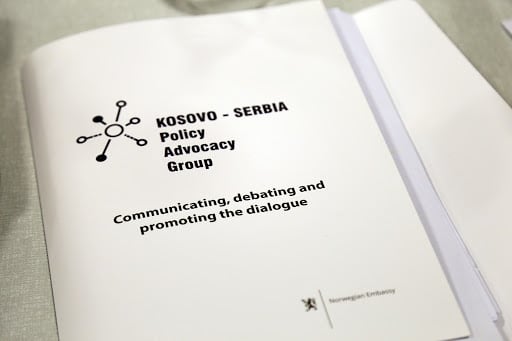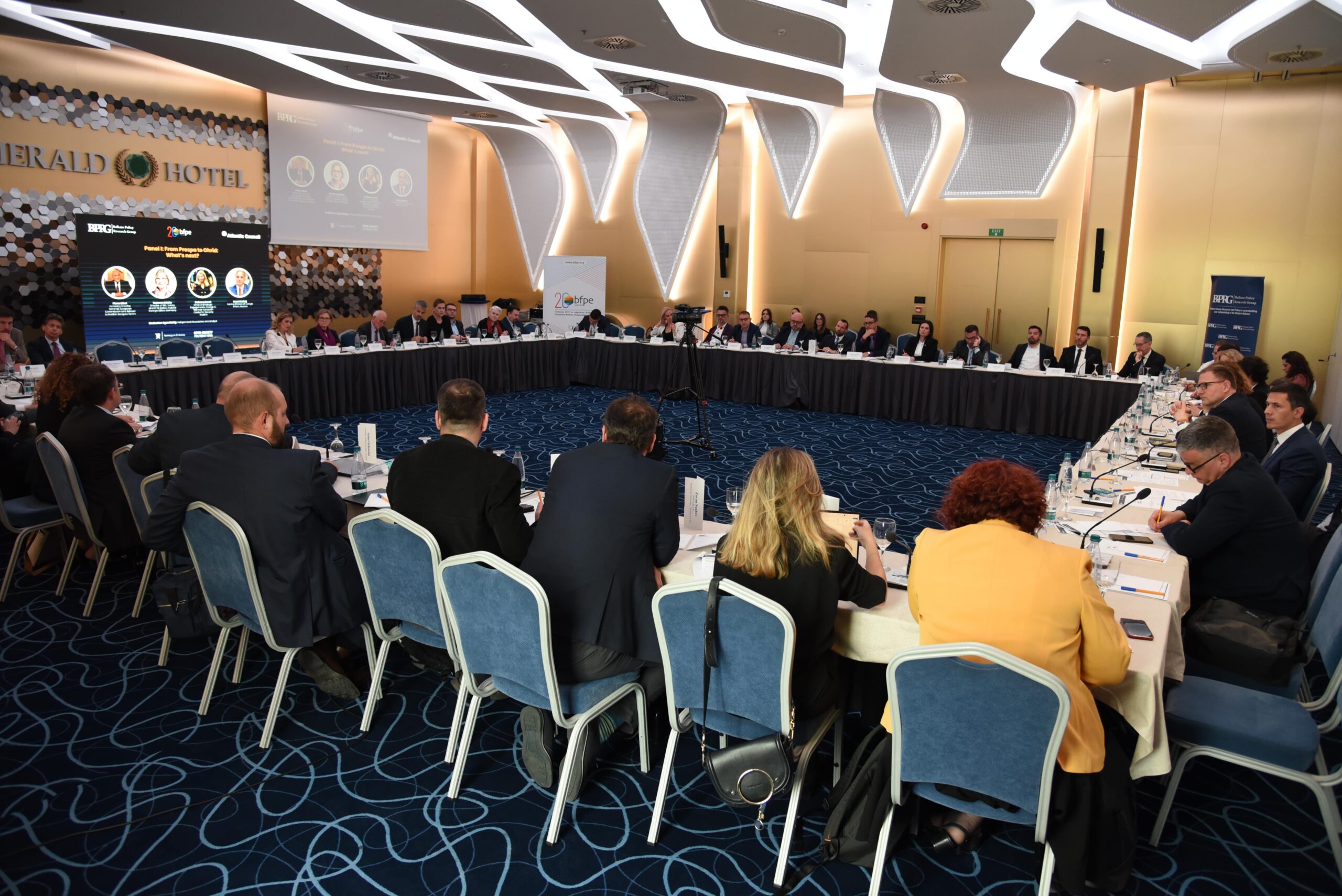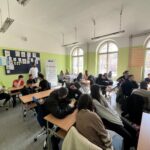The Balkan Policy Research Group (BPRG) is seeking the services of an external consultant(s) for the final evaluation of the “Promoting and Communicating Benefits of the Kosovo-Serbia EU Facilitated Dialogue” project funded by the European Union.
Background
“Promoting and Communicating Benefits of the Kosovo-Serbia EU Facilitated Dialogue” project is being implemented by the Kosovo – Serbia Advocacy Policy Group (KSPAG) consisting of eight NGOs from Kosovo and Serbia. KSPAG members include Balkans Policy Research Group (BPRG), Democracy for Development (D4D), Kosovar Centre for Security Studies (KCSS), NGO Aktiv, Belgrade Forum for Political Excellence (BFPE), Belgrade Centre for Security Policy (BCSP), European Movement in Serbia (EMinS), and Lawyers Committee for Human Rights (YUCOM).
The project seeks to promote and communicate the benefits of the EU facilitated technical dialogue on the normalisation of relations between Kosovo and Serbia to the wider public by focusing on a number of communication and outreach activities, peer-to-peer cooperation, research and local engagement.
The cluster of actions applied by the project both in Kosovo and Serbia include:
- Opinionated activities (publication of Op-eds and TV debates),
- Peer to peer visits and grassroots dialogue (workshops, local roundtables, peer to peer exchanges between Kosovo and Serbia),
- Research and publication (research to explore the views of Kosovo Albanians, Kosovo Serbs and citizens in Serbia on the benefits of the Kosovo – Serbia EU facilitated dialogue and conferences to launch the research report,
- Consortium Forum coordination (KSPAG Steering Committee Meetings to assist the consortium coordination and project implementation),
- Project communication (KSPAG website and social media channels).
Scope of the evaluation
The purpose of this final evaluation is to assess the impact and effectiveness of the project and the activities conducted during the lifetime of the project. This assessment aims to measure project results and identify the best actions and approaches used and exploring what are the major factors influencing the achievement or non-achievement of project outcomes.
Outcome 1
Understanding and support for the technical dialogue in Kosovo and Serbia improved as a result of the unbiased communication from the Kosovo-Serbia Policy and Advocacy Group.
Outcome 2
The EU facilitated dialogue process is informed on its impact on citizens’ life and on the expectations of the latter.
Outcome 3
Shared EU facilitated dialogue perspectives through peer-to-peer exchanges.
Outcome 4
Disseminating the dialogue processes and outcomes of the EU facilitated dialogue to the local stakeholders.
Outcome 5
Sustainable, credible and profiled consortium of CSOs from Kosovo and Serbia (Kosovo – Serbia Advocacy Policy Group) on the EU facilitated dialogue and EU perspective.
Evaluation methodology
Evaluation methodology may contain both qualitative and quantitative methods as deemed appropriate for the purpose of this evaluation. Methods should include: desk review of documents, interviews with stakeholders, partners, and beneficiaries, field visits, use of questionnaires or surveys. It is expected for the methodology to be revised in consultation with the key project stakeholders and beneficiaries as necessary. The evaluation shall be conducted in Kosovo and Serbia to cover the full area of the project implementation
Evaluation questions
Impact
What is the project impact? Have the project outcomes been achieved?
Has the project impacted the desired target actors and how?
To what degree the project contributed to the development taken place in regards the project goals?
Has the project influenced policy making at different levels?
Effectiveness
Has the project been on track to achieve its expected results?
Has the project appropriately reached its target groups? Has the project served the needs of different social groups, i.e. women, youth, minorities?
What activities have produced the best results?
What challenges have been faced? What has been done to address the potential challenges/problems?
What are the positive and negative, intended and unintended long-term effects?
Sustainability
Is there evidence of long lasting desired changes caused by the project?
Expected deliverables
- Inception report containing the methodology and instruments to be applied during the final evaluation, and the work plan subject to the BPRG approval.
- Draft final evaluation report with the methodology applied, a presentation of findings, lessons learned and recommendations to the KSPAG suggesting possible new interventions.
- Final evaluation report accounting for the BPRG and other KSPAG members’ feedback.
The final evaluation report must include, but not necessarily be limited to, the elements outlined below:
- Title and opening pages
- Table of contents
- List of acronyms and abbreviations
- Executive summary
- Introduction
- Description of the project
- Evaluation scope and objectives
- Evaluation methodology
- Data analysis
- Findings and conclusions
- Recommendations
- Lessons learned
- Annexes (Project log frame, list of people involved)
The evaluation should be completed during the period of 25 February – 20 March 2020.
Required skills and competences
- Advanced academic background in political sciences, international relations and other relevant fields.
- Experience of evaluations, research conduction and analysis of similar complexity.
- Knowledge of the political situation in Kosovo and Serbia, and the EU facilitated dialogue.
- Excellent report writing and presentation skills.
How to apply
Interested candidates or companies should send the following documents to [email protected] no later than 20 February 2020.
- Curriculum Vitae (CV),
- Technical proposal: outlining the methodology envisaged for the assignment for delivering the expected results within the indicated timeframe,
- Financial proposal: including professional fee, travel and other incidentals.
Teams of consultants from Kosovo and Serbia are encouraged to apply.













